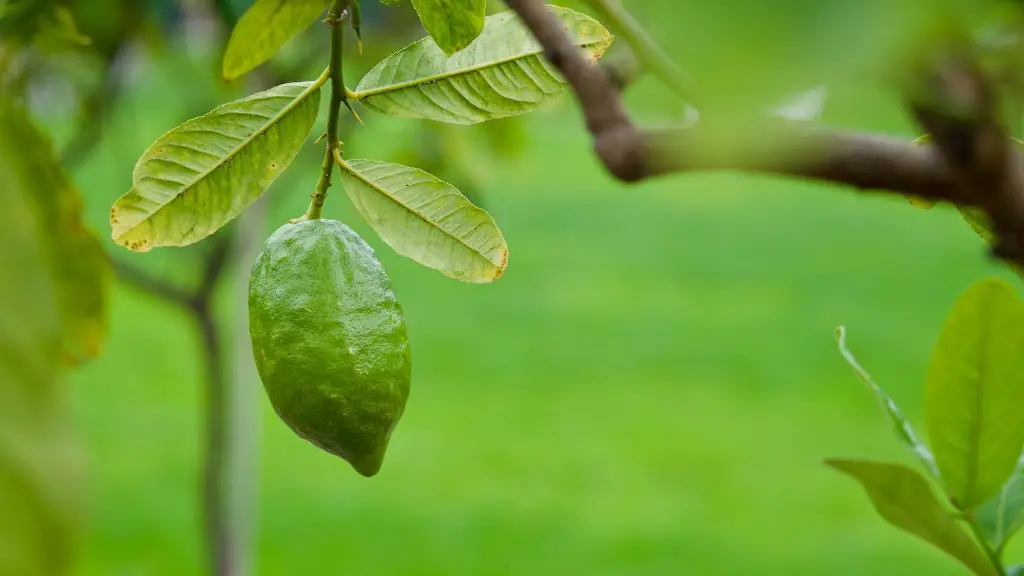Meyer lemon trees are an incredibly popular choice for those looking to bring some citrus joy into their home garden, yet many novice gardeners are surprised to learn that their tree is not producing fruit. While the lack of a harvest can be disheartening to some, understanding the factors that could be hampering the tree’s production is the first step in ensuring a successful harvest in coming seasons.
First and foremost, Meyer lemon trees require a proper balance of sun and water in order to ensure healthy fruit production. Trees that are planted in areas with too much shade or are regularly over-watered may struggle to produce. As Meyer lemon trees are generally planted outdoors, it’s important to ensure that your tree is planted in an area with plenty of bright, direct sunlight throughout the day for optimal growth and harvest. Additionally, the soil around your tree should be well-draining, as too much water in the soil can quickly become a detriment to growth.
Another factor to consider is the age of your tree, as Meyer lemon trees typically will not begin producing fruit for 3-4 years. Other citrus varieties, such as lime and orange, tend to produce fruit more quickly, so be sure to research crop maturity timelines before planting.
Finally, if you’ve determined that your Meyer lemon tree should be producing fruit but still is not, check the amount of blossoms and blossoms size. If the tree is not producing many flowers, it could be that the tree is being stressed due to nitrogen, iron, or magnesium deficiencies. If the flowers appear healthy, it could be that your tree is struggling with a pest issue, as fungus gnats, mites, and whiteflies can all be detrimental to crop production. In this case, it is important to treat the tree with an insecticide that is specifically formulated for citrus trees.
Proper soil composition
When planting your Meyer lemon tree, it is of the utmost importance to use soil that is suitable for citrus. Citrus trees prefer slightly acidic soil, with a pH between 6.0-6.5. To get the best quality soil, it is recommended that you mix 1/3 of your soil with 2/3 aged compost, as this will give your tree the proper amount of nitrogen, phosphorus, and potassium. Additionally, it is important to regularly fertilize your tree, as fertilization can jumpstart the growth of your tree, increase fruit production, and greatly improve the quality of your harvest.
Ensuring optimal pest control
As mentioned, pests can be a huge detriment to any citrus crop. While it’s important to have your soil tested prior to planting to ensure that your tree is free from pests, it’s also important to periodically monitor your tree for any potential pest issues. Regularly inspecting for potential fungus gnats, mites, and whiteflies, as well as other possible pest and bugs, is key to ensuring a healthy, high-yielding crop.
Gauging a successful harvest
When it comes to gauging just how successful your Meyer lemon tree has been in harvesting fruit, it’s important to remember that not all of your tree’s lemons will be ready at the same time. Meyer lemon fruits tend to ripen in an irregular fashion, meaning that some of your tree’s lemons may be ready to pick earlier on while some may take longer.
Choosing the right variety
Another important consideration when planting a Meyer lemon tree is ensuring that you’re planting the correct variety for your area. There are several types of Meyer lemon trees, so doing your research to find out which type is best suited for your climate is important. Depending on your location, you may be able to grow certain varieties with greater ease than others.
Providing adequate pruning
When looking to increase the size and quality of your Meyer lemon crop, it is important to prune your trees regularly. Pruning your tree can not only make the tree look neat and help to increase fruit production, it can also help to identify any underlying issues with the tree such as cankers, dead branches, and mites.
